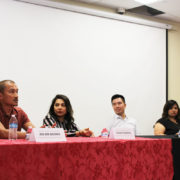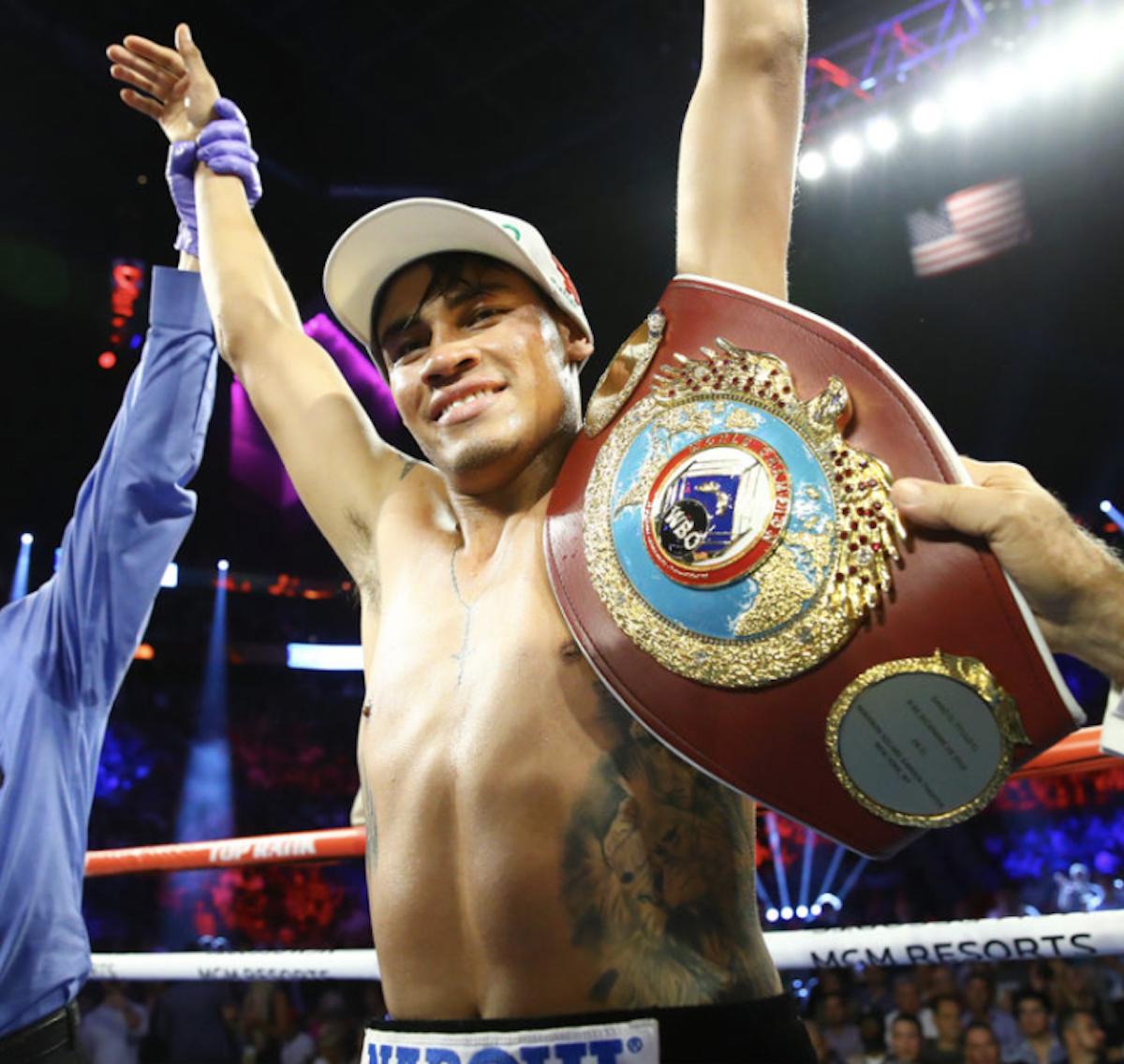Fourth annual FilAm Creative Hollywood Actors Panel featured prominent television, stage actors
It seems that every few years, Hollywood picks up a new social cause. In tandem with the rise of #MeToo and awareness for the overwhelming prevalence of sexual harassment and assault, minority representation and diversity has also been a hot topic circulating the entertainment industry within the last year.
With the success of “Black Panther” and the anticipation for “Crazy Rich Asians,” it’s evident that a tectonic shift is occurring in the racial makeup of Hollywood success, which has historically been synonymous with whiteness.

At the 4th annual Hollywood Actors Panel hosted by FilAm Creative on Saturday, June 9, four seasoned Filipino-American television actors shared their experiences as ethnic minorities in an overwhelmingly majority-white industry.
On the panel were Jon Jon Briones (FX’s “American Crime Story: The Assassination of Gianni Versace”), Ginger Gonzaga (NBC’s “Champions”), Reggie Lee (NBC’s “Grimm”) and Ellen D. Williams (FX’s “Baskets”), all of whom agree that while studios should be more inclined to diversify, the Asian American and Pacific Islander (AAPI) community should create the representation that it wants to see on screen.
“One of the biggest things for anyone at anytime [to do] is if you don’t see it and if you don’t see yourself represented, then do it!” Williams, 45, said. “Write it, film it, and put it out there: there’s no excuse anymore. You can even pick up your iPhone now and create something. There’s so many outlets to be able to do that. We need to be represented more and tell our stories ourselves and not wait.”

The effort to magnify AAPI representation is still in its early stages and all panelists agree that although there has been a monumental shift in the visibility of Asian actors, the fight is just getting started.
“We still have a really long way to go,” Gonzaga, 33, shared with the Asian Journal. As a Filipina-American, Gonzaga — who will star in an upcoming Showtime series “Kidding” alongside Jim Carrey — believes that the fight for equal and accurate representation of minorities is one to be fought by all races. In recent years as social media has given a platform to activists and creatives alike, more people of color have been more vocal about calling out the industry for its racial homogeneity and ignorance to the impact of misrepresentation on ethnic minorities.
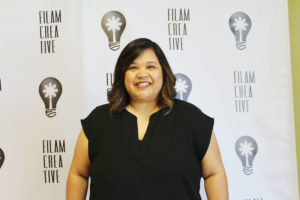
When the Cameron Crowe film “Aloha” came out in 2015 and Emma Stone, who is white, was cast as a character of Chinese descent, members of the AAPI community did not shy away from criticizing the film for “whitewashing,” the act of casting a white actor in an Asian role. In 2016, the campaign #OscarsSoWhite was a response to the overwhelmingly white class of Oscar nominees and have called upon the Academy of Motion Picture Arts and Sciences and studio heads to do two things: diversify the industry and create more nuanced portrayals of the Asian community.
“There is more of a push and I think it’s important that we’re squeaky about it and I think that public shaming is a good thing in this case and it gets us somewhere. It’s odd to not be 100 percent represented but I get how people are easily blind to it because if it’s not their cause then they’re not aware of it,” Gonzaga continued. “It’s just so odd for so long we haven’t seen a rainbow of actors because that’s what makes stories interesting. The whole goal in creating art is to keep chasing stories and making things different and affecting people and the only way you can do that is if you diversify your mind which diversifies stories and diversifies upbringings and ways of thinking.”
Seasoned stage actor, Jon Jon Briones first got his start on the original 1989 London production of “Miss Saigon,” and even then, he noted times when the AAPI community fought against racially insensitive portrayals of Asians. In that original production, renowned British actor Jonathan Pryce, who is white, used prosthetics around his eyes to make himself look more Asian.
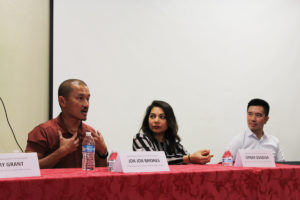
“I think this was the turning point of the change because when Cameron [Mackintosh] decided to bring ‘Miss Saigon’ to Broadway, the Asian Americans, who are aware of lack of representation, were up in arms and that’s when I realized that [whitewashing] wasn’t good,” Briones, 52, said. “That was a wonderful thing that happened, and it’s one of the positive things that happened because the community had banded together and said, ‘you should stop this, you need to change it,’ and I think from then on, Cameron made an effort to do that and to cast appropriately.”
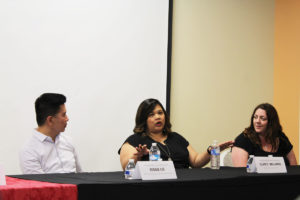
Reggie Lee, who plays Sgt. Drew Wu on NBC’s “Grimm,” shared with the Asian Journal that, one day, he’d like to play more “human” characters who are more complex and fluid in personality and behavior rather than playing strictly archetypal roles.
Lee, 42, describes his earlier career as a slew “bad guy” characters, but the industry-wide diversity conversation continues to evolve, he wants to see more nuanced, human representations Asian characters.
“I think you don’t see a lot of Asian characters living their everyday lives, you know, going through the humanity of an everyday life like breakups or death in the family or any of that stuff,” Lee told the Asian Journal. “When are we going to get to play those roles? When are we going to be invited to the party? And I think what we have to do now is that we have to throw the party.”


